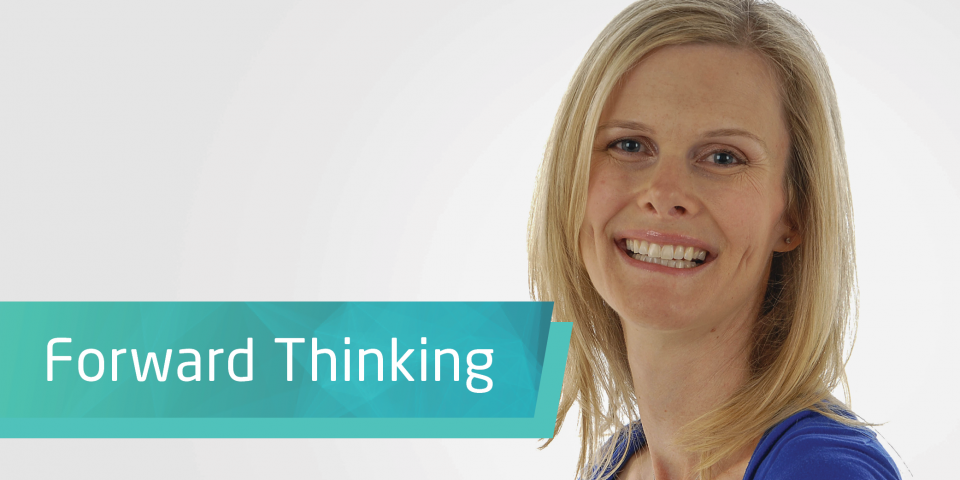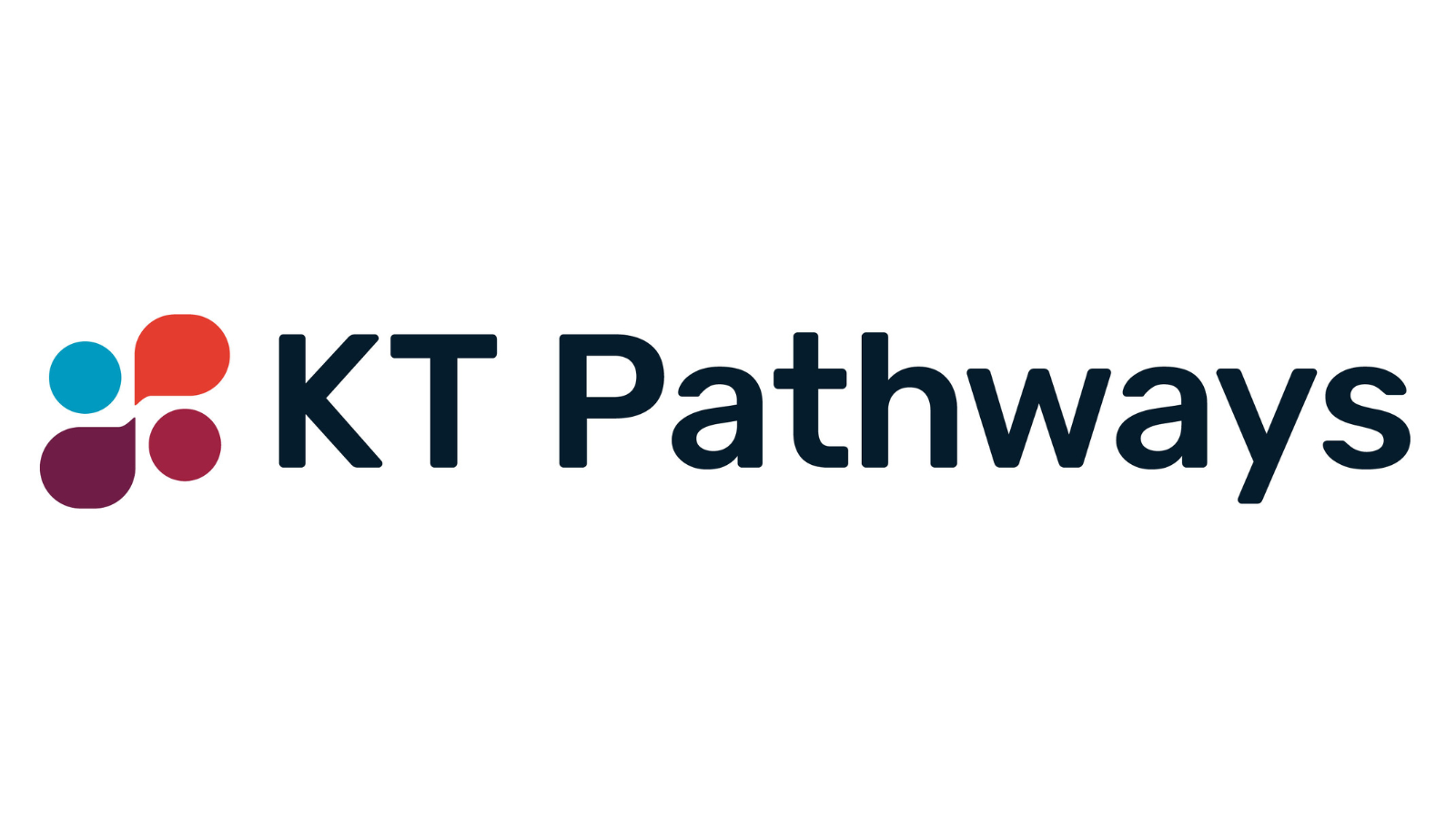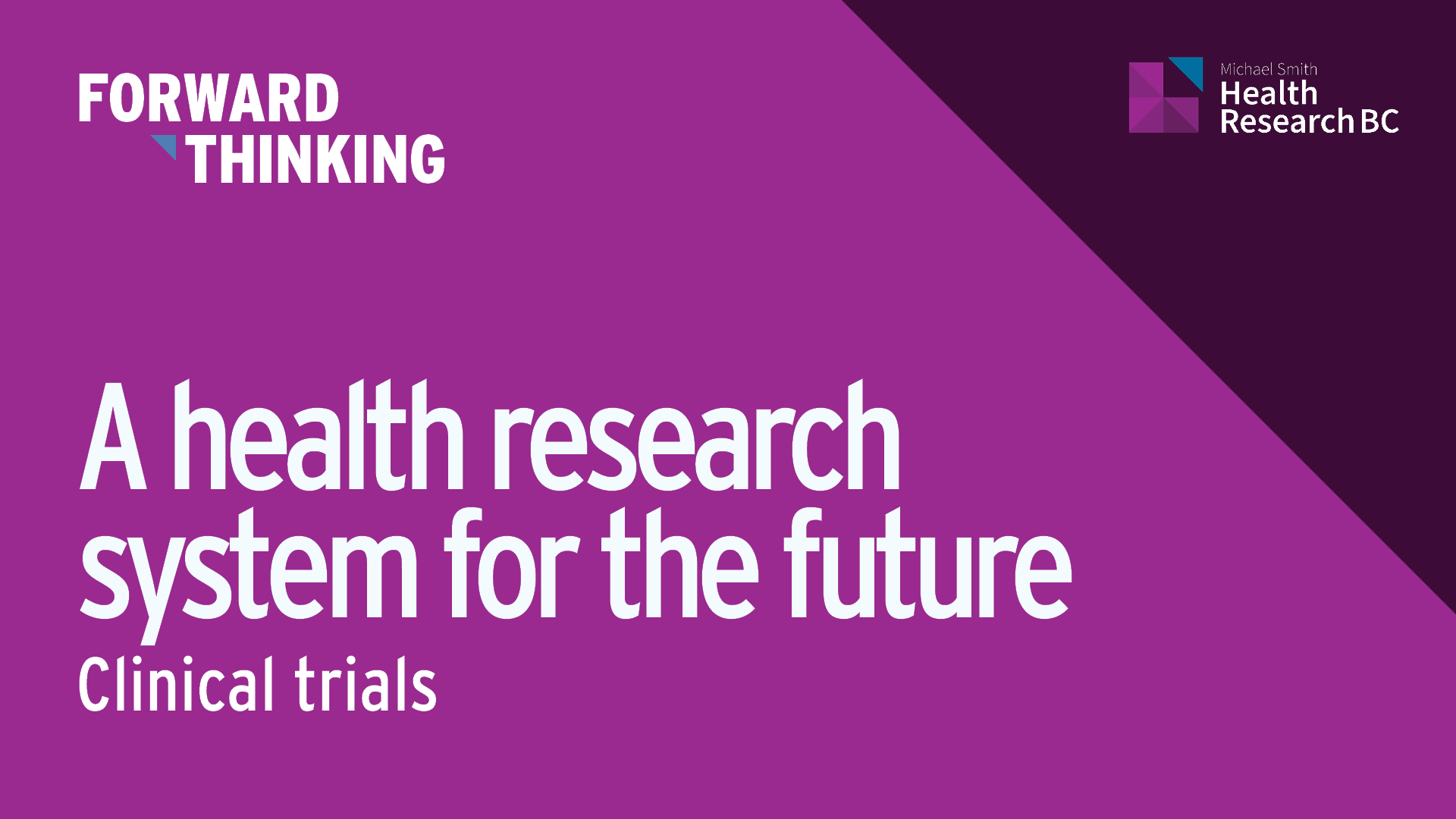The implementation of evidence is a social change project, and we are in it together
21 June 2018

Knowledge translation (KT) is an important element of all MSFHR programs. Our team of KT specialists work to advance both the science and practice of KT, and give BC health researchers the tools they need to increase the impact of their research.
Dr. Gen Creighton, MSFHR’s former Manager, Knowledge Translation was responsible for the implementation, monitoring and evaluation of the Foundation’s knowledge translation strategy. Here, she explores the parallels between the implementation of research evidence and the role of the research funder.
Forward Thinking is MSFHR’s blog, focusing on what it takes to be a responsive and responsible research funder.
The implementation of evidence is a social change project, and we are in it together
Culture trumps strategy, according to a popular Harvard Business Review article. Although the content doesn’t focus on knowledge translation (KT), the key message encapsulates the lessons we are learning about increasing the impact of health evidence on policy and practice. Simply pushing out findings changes very little, and the best strategic ideas are nothing without a solid understanding of cultural context — the tangible and intangible values, norms, communication styles and informal leadership that characterize every institution in which we hope to intervene.
As BC’s health research funder, one of the key objectives for MSFHR is to fund research that will improve the health and well-being of British Columbians. This means that, not only do we invest in exceptional BC researchers and their research, we also advance the practice and science of KT to increase the impact of that research.
As our health-care system struggles in the face of massive changes stemming from technological advances, political changes and increasingly complex health and social issues, it is vital that we work to advance the science of KT. As MSFHR’s President & CEO, Dr. Bev Holmes and colleagues argue, observing how change happens can help us determine how to manage it, and close the gap between research and its implementation.
Conversations about change, institutional contexts and culture featured strongly in the development of our new Implementation Science Team (IST) Program, which will support teams of researchers and research users studying what interventions work within the health system and why, and how these interventions can be implemented, adapted to other settings, or scaled-up across regions. The overall goal of the IST Program is to advance the science of implementation so that we can understand more about the theories, strategies and models that work when putting evidence into practice and policy.
In the two years of careful program development, we consulted heavily with implementation science experts, health decision-makers and researchers. What we learnt went far beyond the IST Program, and highlighted some important parallels between implementation of research evidence and the role of the research funder.
It’s not interventions that create change, it’s the people
The implementation of evidence is a social change project. No successful social change has happened by simply pushing out data or information, no matter how relevant. At the serious risk of over simplifying, social change occurs when the communities are engaged, when people are deeply convinced of the way forward and positive outcomes outweigh the burden and inconvenience. While some health-centred social change projects have been large in scale — such as the anti-smoking or vaccination campaigns —others have a quieter, more iterative impact. Communities may be health-care teams or groups of patients or in some cases, entire countries. Nevertheless, the key principles are the same and apply to our work as a responsive research funder.
- We are in this together. Every two years Edelman produces a trust barometer — the result of talking to thousands of people around the world to find out to what extent we trust people and organizations, professionals, leaders, government and the media. 2017 was a watershed year because it was the first time in a very long time that people saw their peers to be equally credible as professionals. Trust in the system and in institutions has been eroded and folks like researchers, health-care professionals and decision-makers no longer automatically enjoy the trust and respect their position and education might have received in the past.But this isn’t always a bad thing! Earned trust is more powerful, argues Dr. Justin Jagosh, senior research fellow at the University of Liverpool and speaker at our recent Fuse conference. Trust that is achieved through conversations about expectations, negotiations and promises can create the relationships between researchers and communities that result in powerful and sustainable interventions.One of the aims of MSFHR’s Convening & Collaborating Program is to support the work that researchers and research users do together. Through facilitating collaboration and encouraging authentic engagements with community, we can help to establish trust that will hopefully have lasting impacts.
- Location, location, location. As efforts towards co-production of knowledge gain prominence we look for ways to make the research table longer and more accessible to those who have been excluded from conversations in the past. We acknowledge that complex health issues can only be solved with the involvement of those who are most affected.In her participatory research with youth, Dr. Emily Jenkins notes that true inclusion takes some creativity. We’ve got to think broadly about how to meaningfully and authentically engage potential users of research, which sometimes means a different seating arrangement, more seats, higher seats or putting the table outside for a while. Sometimes it means getting rid of the table all together and exchanging it for bicycles.In the past few years MSFHR has increased our investment in integrated knowledge translation (iKT), both through the researchers we fund and the KT training and capacity building opportunities we deliver. This approach to research works to foster equitable partnerships and maximize the benefits that all receive from the research enterprise.
- Go back to the drawing board when necessary. At the recent Health xChange, Kylie Hutchinson, principal consultant at Community Solutions Planning & Evaluation, gave a brilliant example of a stymied KT attempt — her ‘big fat systems mapping failure’. To communicate why it was hard to find and keep doctors in a rural community, she created a systems map with every imaginable barrier and facilitator. She thought it was genius. Her audience found it … confusing. The science was on target but the communication fell short and Hutchinson had to take a few steps back to re-engage her community in a way that they could understand, and take ownership.It is so tempting to see the knowledge-to-action cycle as a graceful flight from synthesized evidence (which beautifully addresses the health issue) to the satisfying landing as the intervention(s) slip into perfect place. A more accurate metaphor is a spiral. In the process of design, planning and intervention, we are continually returning to our knowledge base, which is always growing and evolving.Through putting on events such as Health xChange, MSFHR provides a platform for the excellent researchers (many of whom we have funded) to share the inspiring work they are doing in KT.
Growing and learning as a funder
As a funder we continually challenge ourselves to embrace the principles of KT that we ask our researchers to strive for: to earn trust through listening and building relationships; to be aware of those that are silent or missing; to be prepared to revamp and revise when efforts fall short. Dr. Zena Sharman, our director, strategy, has already written on our investment strategy and gender equity — two areas where we are working to incorporate the principles of KT into our work as a funder. And as we continue to refine our new suite of funding programs, our learning and improvement cycle is helping us ensure our programs meet the needs of the health research community (watch out for a blog post on that topic later this summer). Our next blog post by Gayle Scarrow, our director, knowledge translation, will explore how a funder can contribute to the science of KT by participating in research about KT.
Our role as a health research funder committed to supporting health research that improves health and advances the science of KT means being agile. It means living into and with complexity. As Vikram Khosia reminds us, “many times experts fail because they are experts in the past version of the world”. Rather than leading from the front, where we might miss important voices, we can be leaders from within the health ecosystem, continually learning and evolving to ensure we meet the needs of the health research community.





